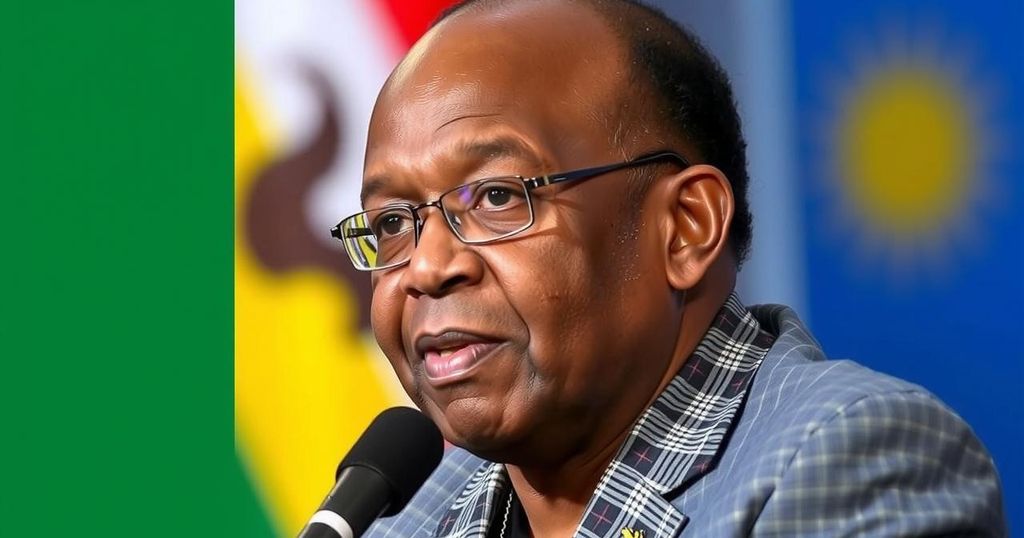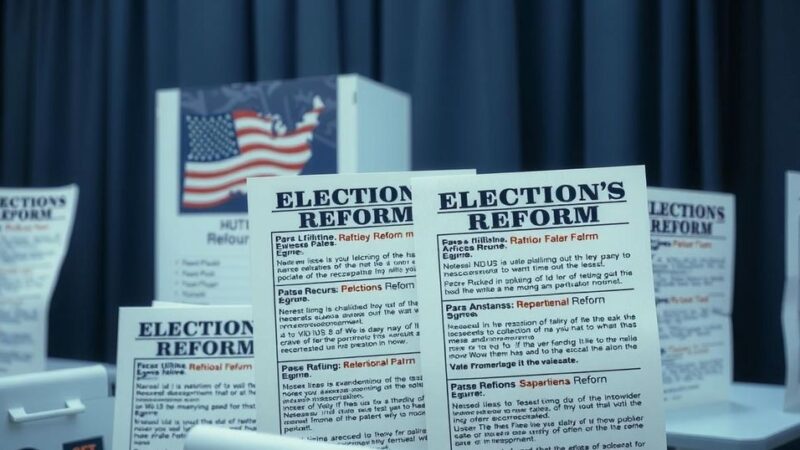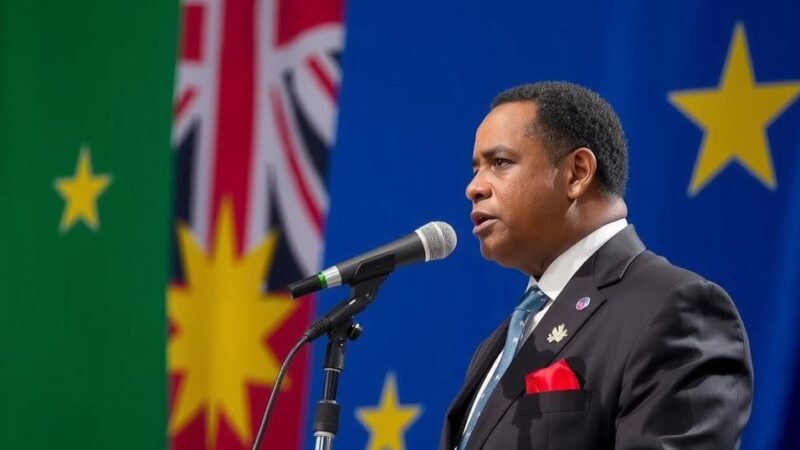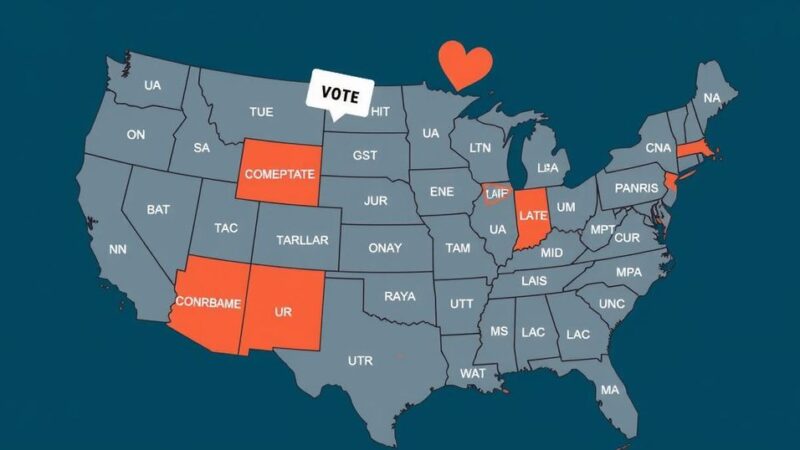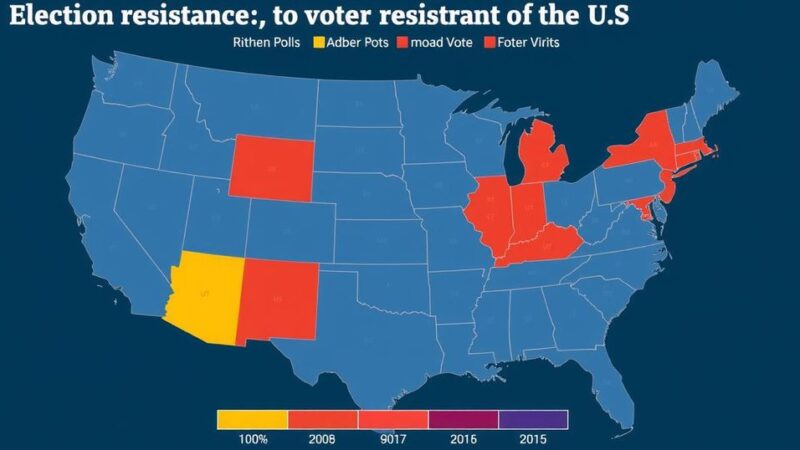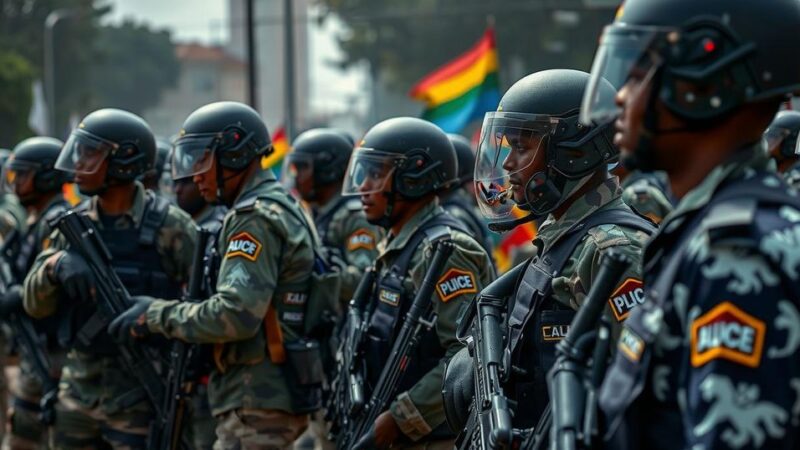Botswana’s President Mokgweetsi Masisi has conceded defeat in the recent election, marking the end of the BDP’s six-decade rule. Preliminary results indicate the opposition coalition, UDC, led by Duma Boko, has won a commanding majority. The election reflects a significant shift in the political landscape amid economic challenges following a downturn in the diamond market.
In a monumental shift in Botswana’s political landscape, President Mokgweetsi Masisi has conceded defeat following preliminary election results indicating a significant loss for his party, the Botswana Democratic Party (BDP), which has held power for nearly 60 years. According to reports from the private Mmegi newspaper and state radio, the BDP has suffered a decisive defeat in over half of the parliamentary constituencies, paving the way for the opposition coalition, Umbrella for Democratic Change (UDC), to potentially assume power. The UDC, led by lawyer Duma Boko, has surged to the forefront, although Mr. Boko has yet to publicly address his supporters. In his address, President Masisi expressed his respect for the democratic process, stating, “Although I wanted to stay on as your president, I respect the will of the people and I congratulate the president-elect. I will step aside and I will support the new administration.” This election, which analysts had predicted would be competitive, has ultimately resulted in the BDP only securing one seat out of the 36 tallied thus far from a total of 61 constituencies, while the UDC has claimed 25 seats. A minimum of 31 seats is required to obtain a parliamentary majority in this election. Botswana’s political history has been characterized by stability and relative economic prosperity, largely due to its diamond wealth and a small population that benefits from free healthcare and education services. Nevertheless, recent downturns in the diamond market have prompted challenges in diversifying the economy, and the country has experienced growing fiscal pressures in recent years.
The political climate in Botswana has historically been dominated by the Botswana Democratic Party (BDP) since the country gained independence from Britain in 1966. The BDP’s governance has been marked by stability and development, attributed in part to the nation’s valuable diamond resources that bolster its economy. However, as the nation’s diamond revenues have begun to dwindle, partly due to fluctuations in the global market, analysts have noted increased public scrutiny of the BDP’s ability to manage the economy and fulfill the populace’s needs. The emergence of robust opposition coalitions, such as the Umbrella for Democratic Change (UDC), reflects a growing desire for political change among the citizens of Botswana.
The recent election in Botswana marks a significant turning point in the country’s political history, with the ruling BDP relinquishing power after decades of dominance. President Masisi’s concession exemplifies a commitment to democratic principles and peaceful transition of power, as the UDC emerges poised to lead. This development signals both a challenge and opportunity for Botswana as it seeks to address economic diversification amid changing global circumstances.
Original Source: www.theguardian.com
